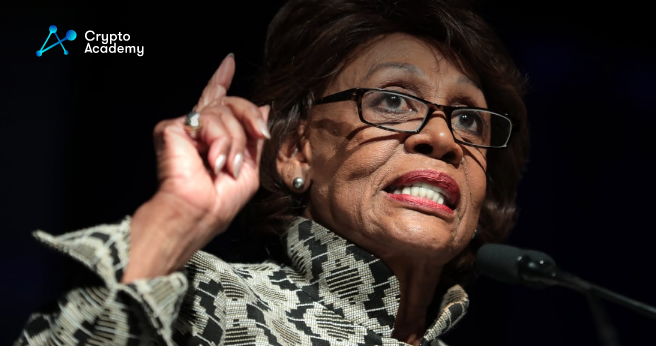Maxine Waters Expresses Concern Over PayPal’s Stablecoin Launch

Maxine Waters voices concerns over PayPal’s stablecoin launch, emphasizing the need for federal regulation and bipartisan cooperation.
Democratic Representative Maxine Waters from California has voiced significant concerns over PayPal’s recent entry into the stablecoin market. Her worry is rooted in the fact that PayPal launched its PYUSD stablecoin without waiting for federal regulatory approval. The stablecoin, issued on the Ethereum blockchain by Paxos, aims to compete with established players like Tether (USDT) and Circle (USDC) in the $125 billion market.
Waters stressed the importance of federal oversight, especially considering PayPal’s influence in the payments industry. She emphasized that stablecoins should be seen as a new form of money, requiring federal regulations to ensure the stability of the financial system. Her comments come at a time when stablecoins have garnered attention following last year’s collapse of Terra’s algorithmic stablecoin, UST, which was valued at $40 billion.
Federal Reserve Chairman Jerome Powell has expressed that the federal government must play a significant part in regulating stablecoins. However, Paxos is currently regulated by the New York State Department of Financial Services, a state-level approach that Waters finds inadequate.
Federal Regulation and Stablecoins: A Crossroads
The launch of PayPal’s stablecoin has ignited a debate among lawmakers about the need for comprehensive digital asset regulation. The issue of federal vs. state regulation has become a contentious topic, especially after the Federal Reserve’s blog post on Tuesday, which indicated that guidance would soon be provided to American banks regarding stablecoin issuance. The guidance is expected to include aspects related to record-keeping, know-your-customer (KYC) rules, and the nature of transactions.
Patrick McHenry, Chairman of the Republican-led House Financial Services Committee, has recognized PayPal’s move as a signal that the time has come to finalize legislation for stablecoins. He highlighted the urgency of enacting laws to regulate digital assets, especially in the context of a growing stablecoin market.
Waters, however, has strongly opposed the Republicans’ plan to allow stablecoins to be regulated under state regimes. She sees this approach as potentially dangerous, undermining the Federal Reserve’s ability to manage the economy, fight inflation, or support employment.
Crafting a Bill That Works: A Call for Bipartisanship
Waters also addressed the current state of the stablecoin bill, describing the Republicans’ alterations as problematic and urging them to return to the negotiation table. She believes the proposed bill poses a risk to consumers and limits the Federal Reserve’s control over the economy. Waters emphasized that a bipartisan effort is essential to create a bill that effectively safeguards both consumers and the financial system.
The Congresswoman’s call for negotiation resonates with the broader need for a consensus on how best to approach the rapidly growing stablecoin market. With major players like PayPal venturing into this space, the urgency for clear and effective regulation becomes more apparent. The alignment of federal and state authorities, along with bipartisan cooperation, will likely be crucial in shaping the future of stablecoin regulation and ensuring the financial system’s integrity and stability.

Comments are closed.